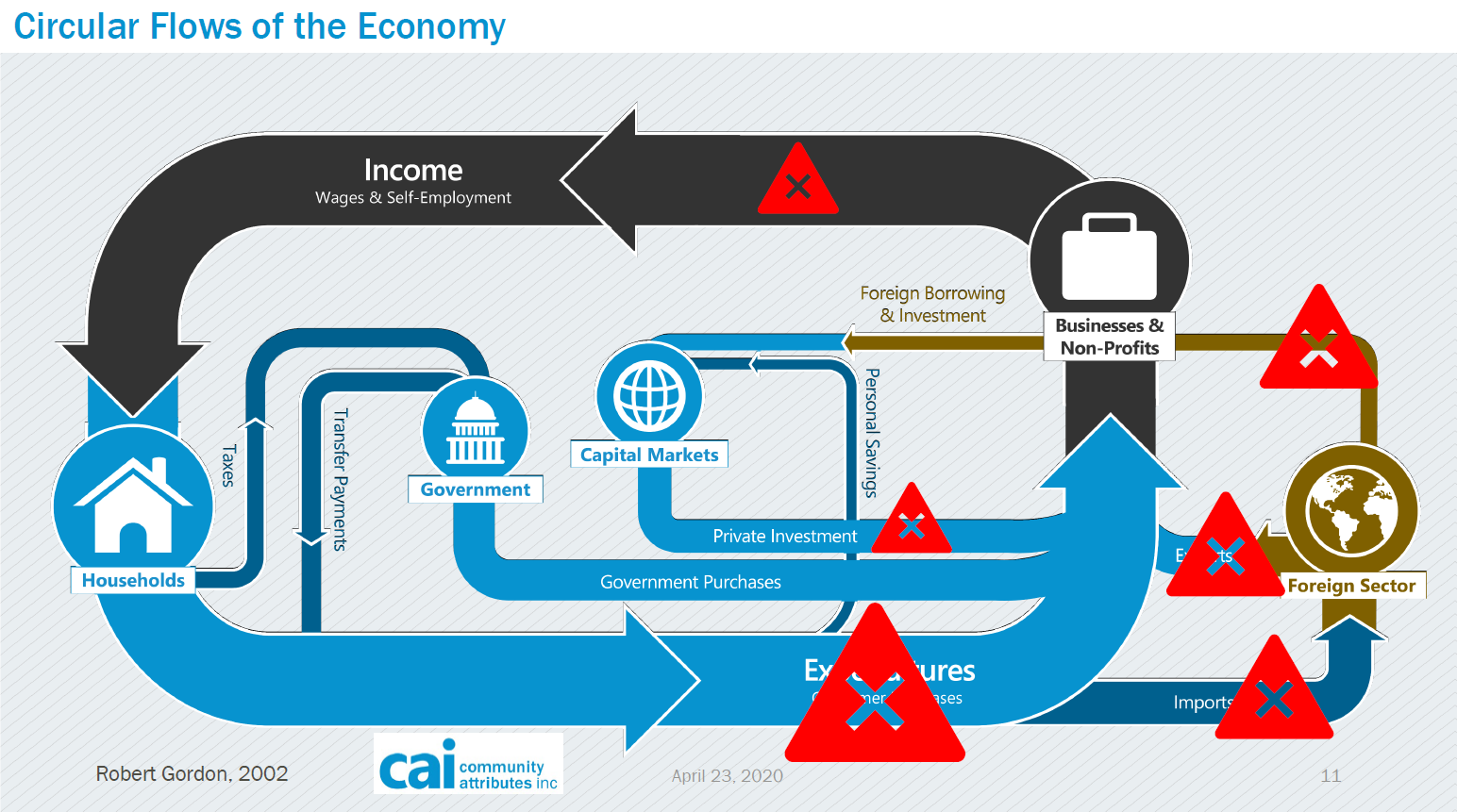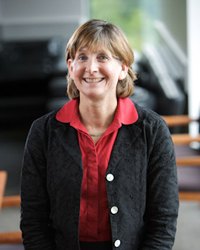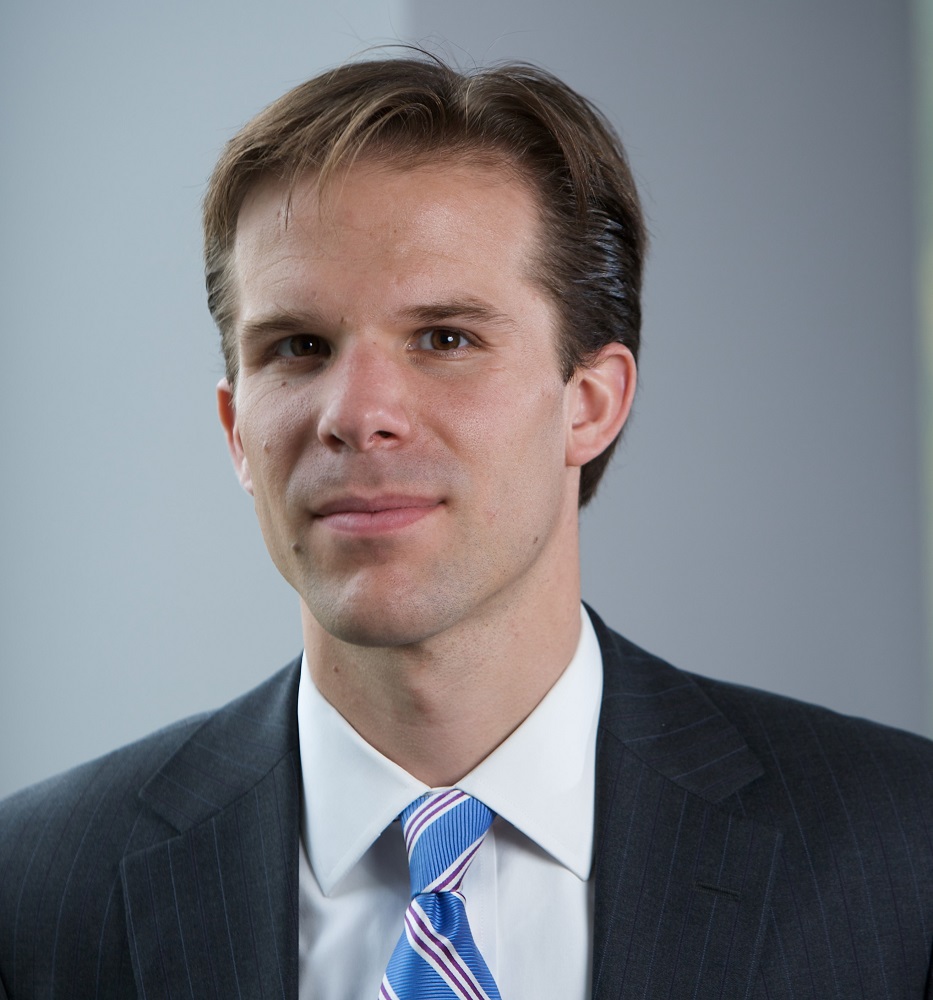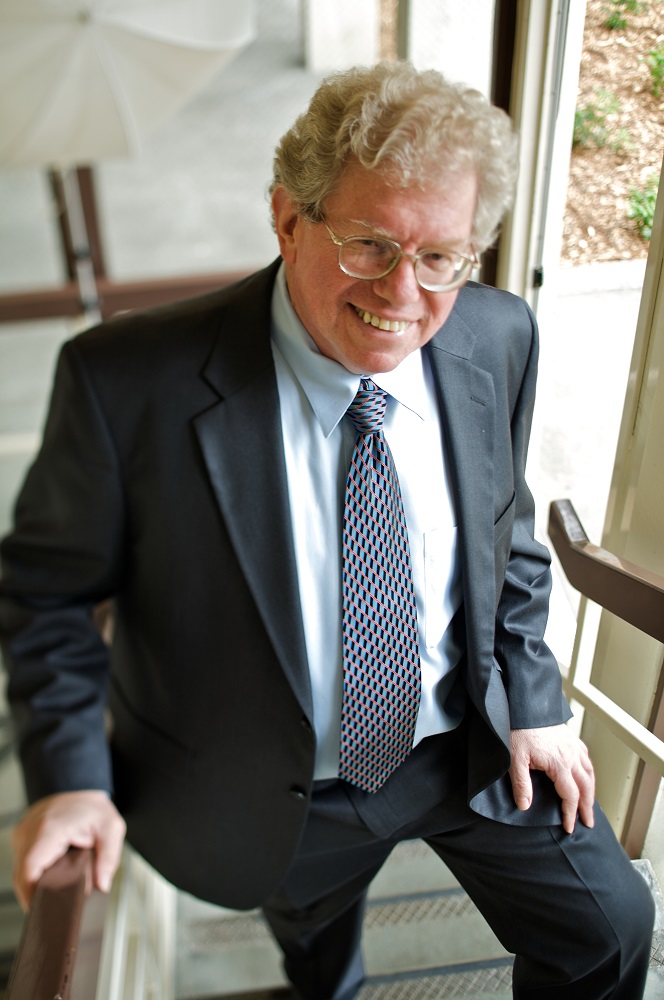Foster panel examines economic fallout of the COVID-19 pandemic
 “There’s no such thing as an economic update right now that doesn’t talk about the coronavirus,” offered Chris Mefford (MBA 2002) in his prologue to the UW Foster School’s annual State of the Economy Forum, April 28.
“There’s no such thing as an economic update right now that doesn’t talk about the coronavirus,” offered Chris Mefford (MBA 2002) in his prologue to the UW Foster School’s annual State of the Economy Forum, April 28.
The pandemic infected and inflected every word spoken by Mefford and the panel of Foster faculty economists Debra Glassman, Thomas Gilbert and Ed Rice. It even dictated that the event take place, like everything else these days, as a remote gathering, with the panelists and audience of nearly 1,000 people connecting via screens from the safety of their own isolation.
It still proved to be highly informative and, with Rice providing a welcome dose of wry wit, even pretty entertaining at times (see: his recommendation that we rename the $2.2 billion CARES stimulus package the “No Shrivel Bill.”)
Mefford, the founder, president and CEO of the local economics consulting firm Community Attributes, laid out the somber global, national and local situation in all its shocking numbers and plunging trend lines.
How bad is it?
The fall from best-of-times (nearly full employment, record stock market) to worst-of-times (30 million out of work, plummeting consumer confidence, crashing supply and demand simultaneously) occurred in a matter of days. But Mefford advised that recovery is the third part of a pandemic trilogy. And right now, we’re squarely in phase two.
“Public health is now an economic imperative,” declared Mefford. “The single biggest thing we can do to sustain and grow the Seattle regional economy and the economy worldwide right now is to focus on the virus and to get control of the virus and stop the virus from spreading and doing more damage than it’s already done.”
Then, fielding audience questions, the panelists weighed in on the gravity of the situation worldwide, gauged the response so far of the federal government and the Fed, explained the stock market’s seemingly detached-from-reality rebound, tabled most fret over cratering budget deficits and mounting debt for a clearer day ahead, considered the possible effects on real estate, and even pondered the third-rail calculation of the value of human life versus economic health.
All panelists accepted that there will be many losers in the fallout of the pandemic-driven recession. Retail. Travel. Entertainment. Among others. And other sectors, like education, will be irrevocably changed by the experience.
Glimmers of hope
But there will be an upside… in the long run.
Mefford predicted that the pandemic will embolden us with the mental preparedness to more confidently face future crises, plus the risk tolerance it will require to rebuild from the current one.
Glassman, a principal lecturer of finance and business economics, sees the signs of a stronger commitment to the triple bottom line: profits, people and the planet. “We’re running this big experiment where we’ve shut things down and people are looking up and saying, wow, the sky is bluer… I think there may be some positive effects in terms of addressing climate change because we actually see, tangibly, what the effects can be,” she said. “I also think that we’re seeing much greater appreciation for the people who are on the front lines, whether it’s first-responders and healthcare providers or grocery store workers or delivery people.”
Gilbert, an associate professor of finance, expects to see an explosion of innovation in the economy—led by creative hothouses. “I believe in this destructive force that free markets can be to destroy zombie businesses and move capital to something more productive to create new industries that we haven’t even thought about yet,” he says. “I remain optimistic that, particularly in the Seattle area given the companies here and our great university, people will continue to want to come here and create powerful new business ideas.”
Rice, a professor of finance and business economics for 40 years at Foster, argued that he’s seeing a significant upside to the pandemic right now. And it’s pretty warm and fuzzy for an economist.
“People are figuring out what’s important,” he said. “The value of human contact, the value of being able to hug somebody, the value of being able to take somebody out of a miserable situation is much more highly valued now, I think, than it was before. Nobody is saying, ‘I don’t want to talk to that person because the thread count of their sheets is too low. And that’s a good thing.
“A second thing that has surprised me and that I’m optimistic about is that I know a lot of people who’ve got stimulus checks—or ‘no shrivel checks’—and rather than spending them, they’re giving them away… to people they know who are in really dire straits. These are people who are not getting a tax deduction for this. To have this happen in the 21st century where people are so separated, in a way. I think is inspiring. Really inspiring.”
Watch the full discussion below:




